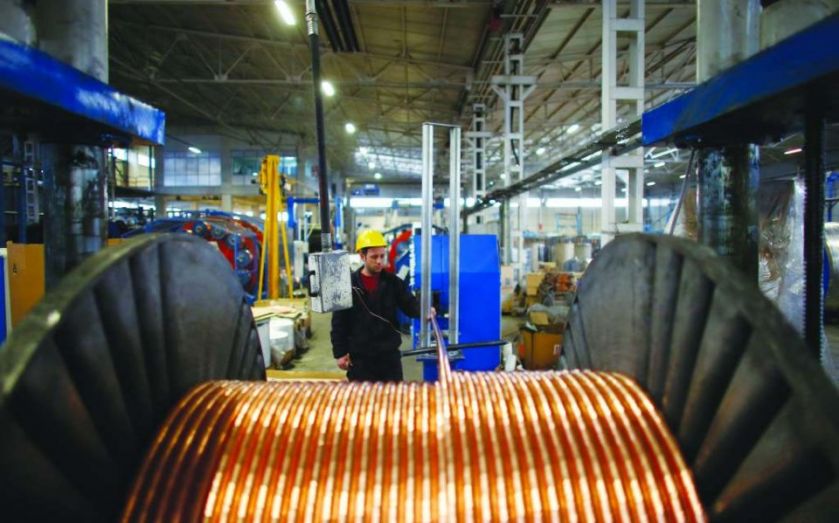Commodities crash to 11-year low as deflation fears grow: Latest price slump complicates backdrop for interest rate hikes

Global commodity prices have slumped amid a glut of supply and low demand – and now experts are foreseeing the prospect of deflation in the West.
A basket of commodities measured by the Bloomberg commodities index has fallen to an 11-year low, and the index is down 42 per cent since its peak in 2008.
The “commodity supercycle” was the term to describe the boom in commodity prices pre-crisis, when global growth was steaming ahead and supported demand. Although commodities have had a hard time post-crisis, falls in the price of everything from from gold and oil, to copper and nickel have accelerated. Tin has fallen 25 per cent so far this year, Nickel is down 54 per cent from its February 2011 high, and natural gas has slumped 40 per cent over the same period.
There is a glut of industrial commodities on the world market and with growth flagging, demand is simply not strong enough.
Slightly different dynamics are at play in the oil market, as Saudi Arabia has vowed to keep Opec’s production high despite weak demand. Already-low oil prices have fallen 10 per cent in the last month, ahead of the lifting of US sanctions against Iran. There is known to be a significant amount of supply stacked up in Iran and waiting to hit the world market. Brent crude for September was down to $56.75 a barrel yesterday morning.
|
46% – fall in copper prices since 2011
25% – fall in tin prices so far this year
|
ASK DOCTOR COPPER
Perhaps most telling is the price of copper, which is trading around its lowest level since the financial crisis.
Known as Dr Copper due to its use as a barometer of global economic health, the industrial metal fell to $5,240 a metric tonne last week, heading towards weakness last seen in the summer of 2008.
The slump in copper is a “direct consequence of the actions we are seeing in China, the increasingly flustered and desperate government [measures]”, says Alastair McCaig at IG Index.
The nation accounts for 50 per cent of global copper demand, and despite official GDP data released last week stating that growth has confounded expectations to hit seven per cent in the second quarter, the figures have been widely ridiculed.
A range of other indicators show China is struggling. Not only is the debt-laden country going through a difficult transition from infrastructure-led growth to a consumption-led economy, but a stock market bubble has recently burst and $3 trillion (£1.9 trillion) has been wiped off the value of local shares. Authorities have taken a heavy-handed approach, banning the sale of some stocks for six months and going after short sellers.
“All of those [measures] independently might not be seen as too much of an issue but bundle them all together and we are seeing increasingly nervous oversight of the Chinese economy,” McCaig says.
DEFLATION
Looking ahead, the ongoing weakness in oil is likely to spell deflation for Western economies. Black gold plays a large part in dictating inflation levels in the West. The last round of inflation data — showing the UK had zero consumer price inflation — was correlated before the latest squeeze on oil prices kicked in.
“The latest fall in oil prices will push many economies including the UK into deflation in the next month or two,” says Michael Pearce at Capital Economics.
DELAYING RATE HIKES
Now experts suggest planned interest rate hikes could be delayed. “The UK is already skirting with deflation in the next couple of months and that is going to keep the Bank of England sitting on its hands,” says Neil Williams at Hermes Investment Management.
Consensus in the market is for the first US rate hikes to appear in December, with the UK set to follow suit early next year. But dozens of central banks have been forced to ease policy so far this year, painting a weak global picture. “The US and UK are talking of raising rates but with 30 banks having cut rates, the way things are going those numbers are likely to increase,” says McCaig.